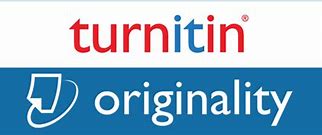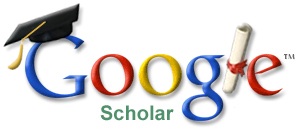Exclusive breastfeeding, Baby's weight gain, Non Exclusive breastfeeding PERBEDAAN KENAIKAN BERAT BADAN BAYI PADA USIA 0-6 BULAN YANG DIBERI ASI EKSKLUSIF DAN NON ASI EKSKLUSIF DI WILAYAH KERJA PUSKESMAS GAMPING II SLEMAN
DOI:
https://doi.org/10.47313/jib.v41i63.692Keywords:
Exclusive breastfeeding, Baby's weight gain, Non Exclusive breastfeedingAbstract
Background: Exclusive breastfeeding is only breastfeeding without additional fluid and other food before reaching the age of 6 months. The Indonesian government has established a program on the importance of exclusive breastfeeding from birth to the age of 6 months. However, every year the feeding formula is increasing. As in the Puskesmas Gamping II working area, the coverage of breastfed babies is still quite low at 56.59%. The coverage of exclusive breastfeeding has not reached the target determined by the Indonesian government. Aim: To determine the differences between the weight of more than six month old infants according to the giving of exclusive breastfeeding and non exclusive breastfeeding in the working area of Puskesmas Gamping II Sleman Health Center. Research Methods: This research method uses Survey research. The approach in this study uses a Retrospective approach. The sample is taken using Simple Random Sampling technique. The sample in this study includes 102 infants, 51 exclusive breastfeeding infants and 51 exclusive non-exclusive infants. Data analysis uses Paired T-Test and Independent T-Test. Results: The average increase in infant weight in exclusive breastfeeding and non-exclusive breastfeeding groups was p-value in the post test (p = .000> 0.05), which means there is a difference in the increase in weight of babies who are given non-exclusive breastfeeding. Conclusions and Suggestions: There is a significant difference in the weight gain of infants who are given exclusive breastfeeding or those who are non- exclusively. It is expected that health workers can improve health education in order to achieve maximum exclusive breastfeeding coverage.References
Arikunto, S. 2010. Prosedur Penelitian Suatu Pendekatan Praktik. Jakarta: Rineka Cipta.
Abdiana, 2014. Hubungan Durasi Pemberian Air Susu Ibu dengan Kejadian Berat Badan Lebih pada Anak Taman Kanank-kanak. http://jurnalmka.f k.unand.ac.id/find ex.pdf.
Harjanto, AR. 2016. Pengaruh Riwayat Air Susu Ibu (ASI) Eksklusif terhadap Pertumbuhan Berat Badan, Panjang Badan dan Lingkar Lengan Atas Bayi Berusia 6 Sampai 12 Bulan. Bandar Lampung Skripsi. Fakultas Kedokteran Universitas Lampung IDAI. 2010. Indonesia Menyusui. Jakarta : Badan Penerbit IDAI.
Marimbi, H. 2010. Tumbuh Kembang, Status Gizi, dan Imunisasi Dasar pada Balita. Yogyakarta: Nuha Medika
Novita, RVT. Keperawatan Mternitas. 2011. Bogor: Ghalia Indonesia
Notoatmodjo, 2012. Metode Penelitian Kesehatan. Jakarta : Rineka Cipta.
Notoatmodjo, 2018. Metode Penelitian Kesehatan. Jakarta : Rineka Cipta.
Prasetyono, D .S. 2010. ASI Eksklusif Pengenalan, Praktik dan Kemanfaatan- kemanfaatannya. Diva Press. Yogyakarta
Prasetyowati, 2010. Studi Komparasi Kenaikan Berat Badan Pada Bayi (0-6 Bulan) Yang Diberi ASI Eksklusif dengan Bayi Yang Diberi Susu Formula. Vol, 1. No. 1 Edisi Desember 2010.
Roesli, 2010. ASI Ekslusif. Trubus Agriwidya : Jakarta
Sugiyono, 2010. Statistik Untuk Penelitian. Bandung : Alfabeta.
WHO. 2014, Maternal Mortality Infographic Kebidanan. Jakarta : EGC. http://www.who.com [Diakses tanggal 10 Nov








